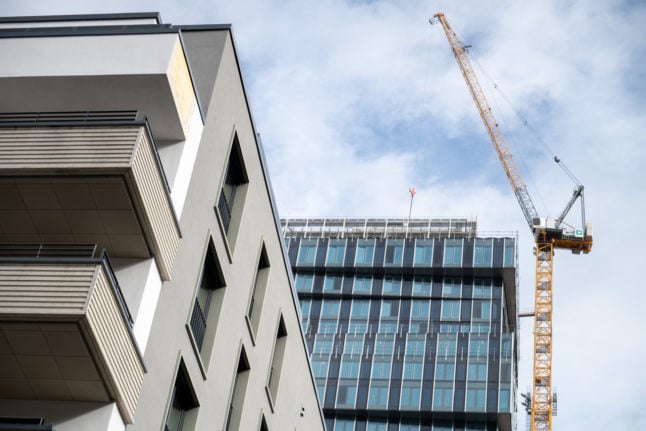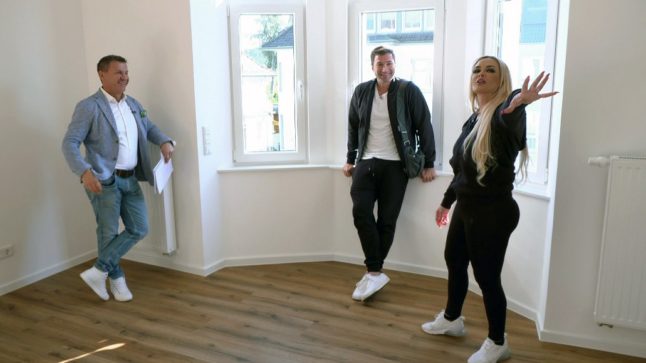There’s not been a lot of good news for renters in Germany recently. Rental costs continued to rise throughout 2022 and, with increasing demand in the rental market, tenants find themselves in a poor negotiating position at the moment. On top of that, renters have also had to contend with rising utility costs, as data from the fourth quarter in Germany showed that Nebenkosten (ancillary costs) now account for 18.3 percent of the total average rent.
However, within this trend of increasing rents, there are certain property types for which rental prices are starting to drop.
In expensive cities, such as Berlin, Cologne and Düsseldorf, there has recently been a significant divergence between the rents on offer for Bestandwohnungen so-called “existing apartments” and for Neubauwohnungen – “new build apartments”.
READ ALSO: Ask an expert: Is now a good time to buy property in Germany?
The term Neubauwohnung generally refers to properties that are currently under construction or have been completed in the last five years, while Bestandswohnungen – existing apartments – are apartments or houses of older construction years.
The latest housing barometer from Immoscout24 shows that rents for existing apartments in major cities were only slightly more expensive in the fourth quarter of 2022 than in the previous quarter, while in Berlin, Cologne and Düsseldorf, the rental prices for existing apartments even went down slightly.
Newly built rental apartments, on the other hand, were significantly more expensive than before in almost all major metropolitan areas.
Looking for a new apartment? Check our rental listings to find your next rental apartment
New-build apartments in higher demand
In Germany as a whole, there has so far only been a slight shift in demand from existing to new construction properties but in certain cities, there has been a significant change.
Berlin, for example, saw a significant decline in demand for existing rental apartments for the first time last year. On average, an advert for an existing rental apartment received 139 contact requests per week in the fourth quarter of 2022. At the same time, demand for new rental apartments rose from 76 inquiries per advert per week in the third quarter to 99 inquiries in the fourth quarter.
READ ALSO: OPINION: Germany’s ruthless housing market is tough on new tenants – but there are winners
In Munich, too, demand for existing rental apartments was significantly lower in the fourth quarter than in the previous quarter. From an average of 75 inquiries for an advertisement per week, demand fell to 63 contact requests. Demand for new-build rental apartments increased by 22 percent in the same time frame.
In Cologne, Hamburg and Düsseldorf, demand for existing rental apartments was also down compared to the previous quarter.
“Demand pressure is easing in the short term in the area of existing rental apartments. This is only a small consolation, as demand in the metropolitan areas nevertheless remains at a very high level,” said Dr. Gesa Crockford, Managing Director of ImmoScout24.
Dr. Crockford attributed the shift in demand to increasing energy costs and the desire for more energy-efficient homes.
“Tenants seem to be increasingly looking for new-build apartments, which are significantly more energy efficient than the often inadequately refurbished housing stock, due to concerns about rising energy costs,” she said. “Accordingly, demand and asking rents for new constructions are increasing at a much faster rate than for existing stock.”



 Please whitelist us to continue reading.
Please whitelist us to continue reading.
Member comments